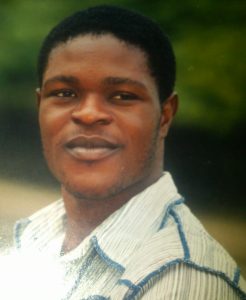Each time I read Richard Wright’s classic satire, Native Son, I feel compelled to write particularly about the ‘antiheroic’ hero – Bigger Thomas – for reasons that will surface almost right away in this write up. However, it is pertinent to state at this early point that the real driving force behind the composition of this essay is not so much in the acts and trials of the protagonist (or the controversies generated by his very portrayal) as is in the fact that a novel published as far back as 1940, and set in another clime, can so much capture the present Nigerian situation of 2019. The purpose of the essay is not to celebrate Wright’s timelessness and indisputably faultless artistry or the spacio-temporal transcendence of the novel. Rather, it is an essay about Nigeria, Nigerians and the travails of the Nigerian underprivileged. However, it is apt to abandon this detour and dive headlong into the whirlpool that is Bigger and his Nigerian Nativity.
So, who is Bigger Thomas? Or better put in the predictable choice of diction of the readers, “who the devil is Bigger Thomas”? If I should lay all my cards on the table, my response is going to be double-faced, much like a Siamese twin or a schizophrenic: much like Bigger himself in the confines of his troubled heart. My Bigger Thomas in this essay is both the protagonist of Wright’s novel as well as the Bigger of present-day Nigeria. Actually, I find it hard to dissociate or distinguish one from the other.
Bigger Thomas is the repressed, oppressed, depressed and angry yet expectant and hopelessly hopeful iconic hero of this story. Born African-American in a pre-civil rights southern state of Mississippi, USA and nurtured (maybe tortured actually) in the Northern state of Chicago with all its splendour and overflowing wealth which the black person is forbidden to access, Bigger lives in abject poverty while inherently and inarticulately conscious of the ‘inalienable’ right of all (human) beings to dignity and a good life. Bigger knows, even if he cannot explain, that all human beings, irrespective of race or social class deserves a fair and unhindered access to education, opportunities, rights and the common wealth which the (white American) society has hoarded and systematically priced and prised out of the reach of the downtrodden. The downtrodden (mekunu/talakawas in Nigerian parlance) are thus left with nothing but dreams, yearnings, aspirations and a Darwinian type of competition for the crumbs dropping from the high tables of the rich (whites): which are few and far between.
If Bigger is left with something other than the dreams and struggles, it is anger. This explains the trajectory of Bigger’s life – a journey through anger to self-hate, psychopathy and jail/death which takes flight from the ports of poverty, squalor, domestic violence, lack of education in any reasonable form, aimless living and fear. And if Bigger is to be identified, especially in terms of his Nigerianness, how do we find him? How do we identify him? How can we help him? After all, there is no racial segregation in Nigeria. Yet, Bigger is 75% of the Nigerian population: maybe more. He is faceless, illiterate, hungry and poor – he is only found in the debatable data of the United Nations’ many departments. He has credentials ranging from “living on less than a dollar per day”, “living mostly in villages and slumghettoes of the cities” and you know them.
He is made hungrier by the aroma of food from the exquisite restaurants and the high-windowed kitchens of the rich. He is made angrier by the vain display of obscene wealth of the rich, made inaccessible by the fat vicious-looking dogs and electrified barbed wires on high walls. He is made dumber by the ill-equipped and irregular public schools which he can only struggle to attend on part-time basis. He is made more faithless by the unfaithful religion that festers in the country. He tries to turn to God but is told to forget his materialistic and ‘worldly’ desires and focus on finding pleasures in heaven. His confusion turns to anger when he discovers that the pastor does nothing but pursue and enjoy a world of pleasure, materialism and worldly desires.
The only thing Bigger has is his anger. And to his pleasant dismay, it is a veritable tool. It scares the rich. It is the reason for hiding behind their high walls so that they can enjoy the proceeds of their gluttonous harvest of the common wealth in ‘peace’. So, Bigger uses what he has. He terrorises the rich and the poor alike. He is unreasonable and wicked. He rapes and robs. He kills at the slightest provocation and strangulates when his will is tested. He sometimes even helps the rich, against whom he started the war. He is confused. He is easily bought. He forgets himself and is now driven by only one passion – to become like his oppressor or kill him (or die trying). Bigger’s situation is pitiful, And like the anger and incoherence that defines his early life, Bigger is hard to understand for those who are looking for sensibility. That’s what makes him Bigger Thomas.

That is the hopelessness of the Nigerian ‘mekunu’.
LikeLiked by 1 person
Yes, and the ‘talakawa’. Unfortunately, some non-mekunu are contracting the anger.
LikeLike